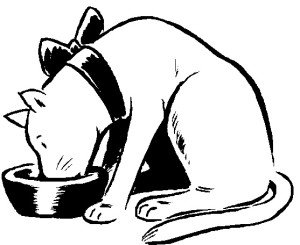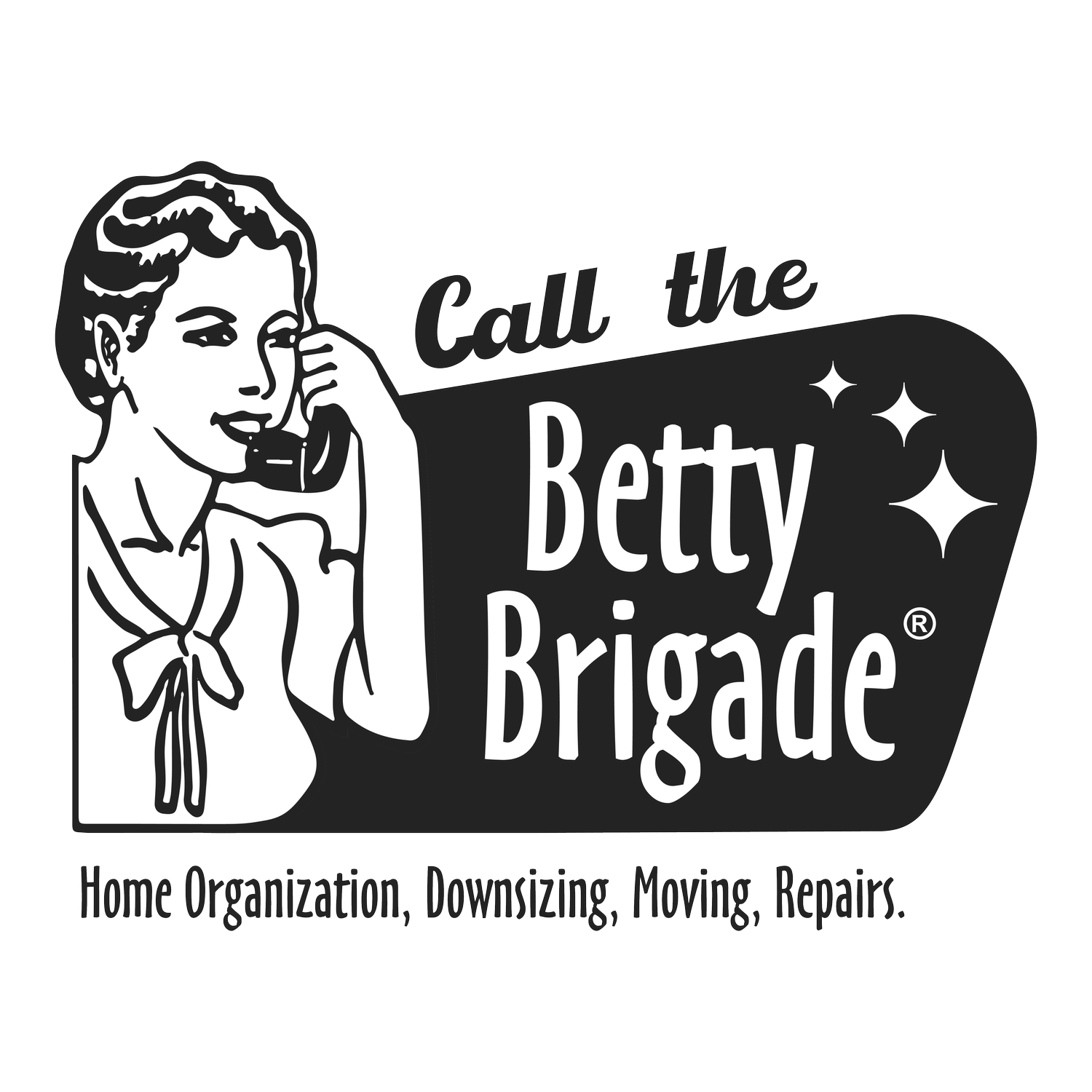Betty's Holiday Pet Safety Tips
As professional pet sitters, at The Betty Brigade we often find this time of year rife with potential dangers for pets. The holiday season is the busiest time of year for poison center calls, according to the ASPCA. Busy with festivities and guests, homeowners can inadvertently leave animals unsupervised and tempted by exotic new items in the home. Recently while taking care of one of our Betty Pet's we noticed something that didn't smell quite right. A few sniffs and we had it: eucalyptus.Eucalyptus?? There's no eucalyptus in the house. Where did she get it?The "aha" moment came after searching the house for anything hazardous, when we found a neat pile of wrapped cough drops under a living room chair. A further search revealed the mother lode: an open bag of Ricolas on a low bathroom shelf. The little varmint had helped herself, then hoarded them -- common among former strays -- under the chair.“Maybe she had a sore throat,” the vet joked, and, “She might be part koala bear.” Everybody’s a comedian.Fortunately, the dog suffered no ill-effects from her escapades in self-medication. But after moving the cough drops to a higher shelf, we got online and discovered that the number one cause of poisoning in pets is human medications -- both prescriptions and over-the-counter items. Not only that, the holiday season is the busiest time of year for pet poison center calls.With that in mind, here are some Yuletide safety tips to help us all ensure that our pets have happy and safe holidays:
Recently while taking care of one of our Betty Pet's we noticed something that didn't smell quite right. A few sniffs and we had it: eucalyptus.Eucalyptus?? There's no eucalyptus in the house. Where did she get it?The "aha" moment came after searching the house for anything hazardous, when we found a neat pile of wrapped cough drops under a living room chair. A further search revealed the mother lode: an open bag of Ricolas on a low bathroom shelf. The little varmint had helped herself, then hoarded them -- common among former strays -- under the chair.“Maybe she had a sore throat,” the vet joked, and, “She might be part koala bear.” Everybody’s a comedian.Fortunately, the dog suffered no ill-effects from her escapades in self-medication. But after moving the cough drops to a higher shelf, we got online and discovered that the number one cause of poisoning in pets is human medications -- both prescriptions and over-the-counter items. Not only that, the holiday season is the busiest time of year for pet poison center calls.With that in mind, here are some Yuletide safety tips to help us all ensure that our pets have happy and safe holidays:
 Besides cough drops, keep these poisonous items out of your pet’s reach: poinsettia plants, holly, amaryllis bulbs, lilies, mistletoe, chocolate, grapes, raisins, onions and nuts. Make sure your pet can’t get into the garbage, where tempting poultry bones might be. These can splinter, damaging your pet’s digestive system.
Besides cough drops, keep these poisonous items out of your pet’s reach: poinsettia plants, holly, amaryllis bulbs, lilies, mistletoe, chocolate, grapes, raisins, onions and nuts. Make sure your pet can’t get into the garbage, where tempting poultry bones might be. These can splinter, damaging your pet’s digestive system.- Don’t allow your pet to to drink the Christmas tree water. Stagnant water can harbor harmful bacteria. Use only non-toxic tree water products. Don’t use aspirin in the water, as this can be toxic, even fatal, to some pets. Consider blocking off the tree area to prevent pet access to electrical cords, tree water, gifts and tree ornaments.
- Pets, particularly cats, can be tempted by tinsel, which can cause choking and intestinal blockage. If you use tinsel, hang it up high and securely on the tree.
- Tape down or cover tree light and other cords to prevent shocks or burns. Unplug lights when you’re not home. Some dogs eat glass ornaments, so hang them high. Snow globes often contain antifreeze, which has a sweet smell and is poisonous to pets.
- Keep pet areas free of pine needles. If ingested, these can puncture the intestinal tract.
- Anchor your Christmas tree to the ceiling with string to prevent it from falling on curious pets.
- Make sure your pets have a safe retreat in your home and that they wear current ID tags in case of escape.
 The bustling activity and many guests during the holidays can be stressful to pets, which can trigger digestive upset, so be sure to keep an eye on your furry friend for any suspicious behavior. In spite of our best efforts, a pet may eat something poisonous. If you suspect your pet has been poisoned, call one of the following numbers:
The bustling activity and many guests during the holidays can be stressful to pets, which can trigger digestive upset, so be sure to keep an eye on your furry friend for any suspicious behavior. In spite of our best efforts, a pet may eat something poisonous. If you suspect your pet has been poisoned, call one of the following numbers:
- ASPCA Animal Poison Control Cente (APCC) 24-hour emergency hotline at 1-888-4-ANI-HELP (1-888 426-4435). There is a $65 consultation fee for this service, since the center has toxicologists and veterinarians available 24/7. .
- The Children’s Hospital of Michigan has a Regional Poison Control Center at (800) 222-1222.
Keep phone numbers for your vet and a local emergency vet service in a prominent location. The ASPCA advises being ready with the following information:
- The species, breed, age, sex, weight and number of animals involved.
- The animal’s symptoms
- Information regarding the exposure, including the agent (poison), if known, the amount of the agent involved and the time elapsed since the time of exposure.
- Have the product packaging, if any, available for reference.

 If your pet is having seizures, is unconscious or is having difficulty breathing, call ahead, and bring your pet immediately to the vet or emergency vet clinic. If necessary, call the APCC or Regional Poison Control Center.In a seal-able plastic bag, collect anything your pet may have vomited or chewed. This may help the vet and/or toxicologist determine the poison(s) involved.If you see your pet consuming a potentially toxic substance, seek emergency help, even if you don’t notice any adverse effects. Even if poisoned, an animal can appear normal for hours or even days after the incident.I’m happy to say that our Betty Pet is fine and dandy. Her hair isn't any easier to brush, but at least she has no sign of a sore throat! Remember these tips for your furry friends and enjoy your holiday season! Stay warm, stay cozy, and until next time - Keep It Simple!
If your pet is having seizures, is unconscious or is having difficulty breathing, call ahead, and bring your pet immediately to the vet or emergency vet clinic. If necessary, call the APCC or Regional Poison Control Center.In a seal-able plastic bag, collect anything your pet may have vomited or chewed. This may help the vet and/or toxicologist determine the poison(s) involved.If you see your pet consuming a potentially toxic substance, seek emergency help, even if you don’t notice any adverse effects. Even if poisoned, an animal can appear normal for hours or even days after the incident.I’m happy to say that our Betty Pet is fine and dandy. Her hair isn't any easier to brush, but at least she has no sign of a sore throat! Remember these tips for your furry friends and enjoy your holiday season! Stay warm, stay cozy, and until next time - Keep It Simple!

